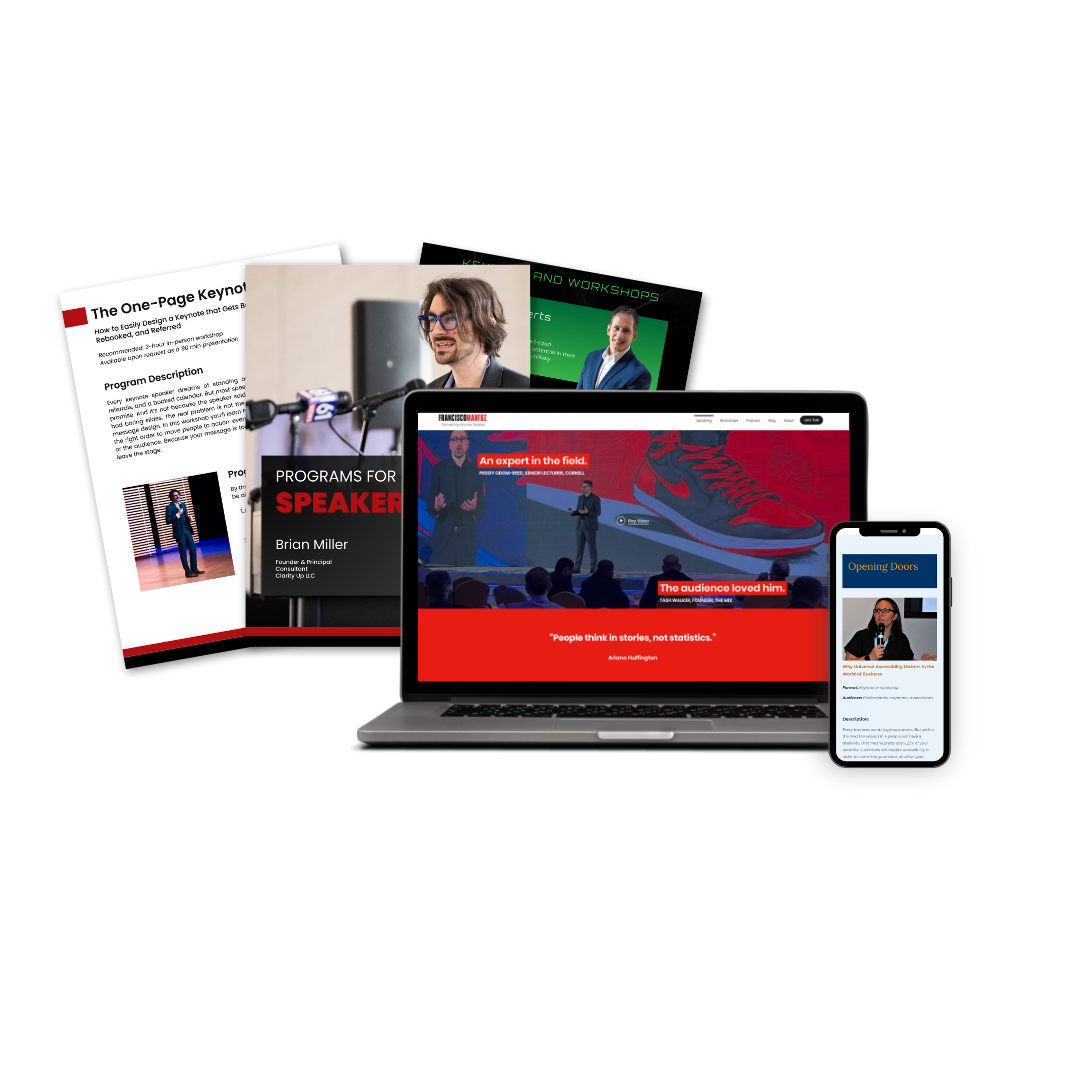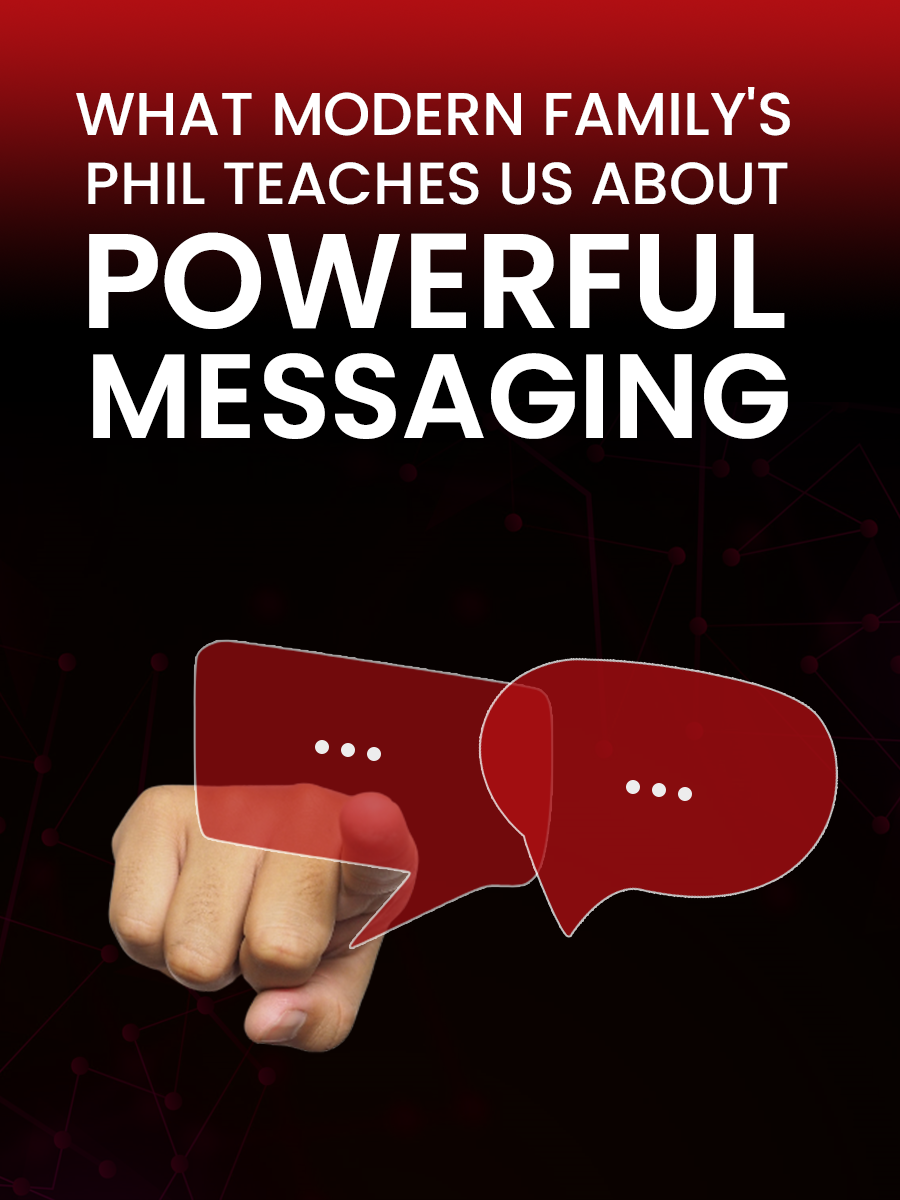How to Charge Whatever You Want For Speaking Engagements
Description: Explore effective strategies to accurately price and confidently charge for your speaking engagements. Learn to identify your audience, leverage market knowledge, and build self-assurance in your value. Our guide provides actionable insights for professionals aiming to secure fair compensation for their expertise.
There's nothing worse than working so hard to get a speaking lead in the door, and ultimately losing it based on price. Or perhaps there is one thing worse: agreeing to work for a fraction of your regular fee.
In the world of professional speaking, pricing your services appropriately is more than just a matter of assigning a value to your time - it's about understanding the intricate dance of value perception, market demand, and personal worth.
As experts and leaders in our respective fields, we've all faced the challenge of determining the "right" fee for our services. However, setting and getting the fee you deserve involves much more than simply picking a number out of thin air.
It's a complex process influenced by various factors, from understanding your audience to recognizing the unique value you bring to the table.
In this article we dive into three critical reasons why many professionals struggle to charge their worth, and offer actionable strategies to overcome these hurdles.
Whether you're a seasoned speaker or a rising consultant, the insights shared here aim to empower you to not only ask for but also receive the compensation you truly deserve.
Here are 3 reasons you're struggling to charge your worth, and how to fix it.
1. Talking to the Wrong Person
Who is actually writing the checks? It's probably not the person who commented on your LinkedIn post or submitted an intake form on your website.
You're likely dealing with an intermediary, a gatekeeper who's been told to collect information and quotes from a handful of possible speakers.
In that case, your job is to arm them with the understanding and marketing collateral to persuasively sell you to the buyer on your behalf. If someone else can't explain what you do, who it's for, and why it matters when you're not in the room, your communication is not as compelling as it needs to be.
Your Shareable Marketing Collateral
The easiest way to overcome this problem is a clear, powerful speaker kit that is easily shared. It may be a dynamic web page, a Drive or Dropbox folder, or an old school PDF.
Whichever method you choose, here are the critical components:
Speech title/subtitle
Speech description
Speech learning outcomes
Your speaker bio
Video reel
And here are optional components that are definitely nice to have:
Speaker one-liner
Testimonials
Media logos / authority
Link to full, unedited speaking engagement
Alternative suggested speech titles
Additional program options
Link to feedback forms from event attendees
Your marketing collateral does not need to be fancy, but it does need to be clear and compelling.
Examples
Brian Miller (Founder) one-sheet PDF: Brian Miller Programs for Speakers
Francisco Mahfuz (Conquer the Red Dot® Certified Coach) speaker page: Francisco Mahfuz Speaking Page
Dr. Marjorie Aunos (client) speaker page: Marjorie Aunos Speaking Page
Chris Roberts (client) one-sheet PDF: Chris Roberts Speaker One Sheet
2. Lack of Market/Industry Knowledge
"Our team watched your TEDx talk and we loved it. We want to have you speak at our annual conference."
"Great!" I said. "My fee is $8,000."
"Oh, we only have $4,000 budgeted."
"Okay, thanks so much. Good luck on your event."
A month goes by.
"Hi again!" She's just as chipper as last time. "We'd really love to have you speak at our event."
"I'd love to! My fee is $8,000."
"We really do only have $4,000."
Another 6 weeks go by.
"Hi Brian, our event is coming up soon. The team really wants you to speak. They love your TEDx talk and it's the perfect fit for this conference."
"Hi, as I've said, my fee is $8,000."
"Yes, and we only have $4,000."
"Okay," I said. "Let me ask, are you having a cocktail hour after the conference ends?"
"Yes, of course."
"And do you typically hire entertainment for cocktail hour?"
"We do!"
"Fantastic. I'm going to walk around cocktail hour and entertain everyone after my speech that afternoon. That'll cost $4,000."
"Done!"
And that's how I got my full fee from someone who swore up and down they didn't have my fee in their budget.
Three Rules About Money
Too many speakers are losing gigs or getting way less than they're worth by not understanding how money flows in their target market or industry.
Rule 1: It's not their money.
When you're dealing with a business or organization, you're not picking someone's pocket. They're spending the business' money, not their own money. This is true even if you're speaking with the CEO, founder, or owner.
Don't project your relationship with your own money on to an economic buyer.
Rule 2: There is ALWAYS money.
If you're dealing with a business or organization in any capacity, they have the money. That's not the problem. The problem is they either aren't convinced you're worth it, or it hasn't occurred to them where to get the rest.
Which brings me to...
Rule 3: When there isn't money, you can help them find it.
If you're dealing with a large company, there are dozens of buckets where budgets have been allocated and are often being wasted. Make an argument how your presentation can align with a different bucket and tap into that budget.
For example, if you're a mental health speaker talking to a university's psychology department, they may really only have $500-$1000 to spend. But what about the athletic department - can you talk help athletes? I bet it can, and athletics has a HUGE budget. Help the psych department connect with athletics and co-sponsor the event, and viola - $5000 or more.
3. Confidence is Crushing You
If you aren't confident that what you're selling is worth the price you're asking, you will never discover your true worth.
But where does confidence come from? As Alex Hormozi notes, it doesn't come from affirmations. In my experience it doesn't come purely from mindset work.
Confidence is the result of doing the work and getting provable results, over and over. The better your work and the more people you've transformed as a result, the more confident you will be selling what you do at the price you want.
My $11,000 mistake
After my TEDx talk went viral I got my first invitation to speak oversees. At the time I was just a magician and had absolutely no idea what a proper speaking fee was for an international gig.
So I Googled it.
Based on my research I told them $12,000 - a number that was 5 times higher than I had ever charged for a magic show. A number that I barely got out of my mouth without my voice cracking.
They may as well have laughed at me.
"No."
I said, "Okay, well, I can do it for $6000."
Still no.
"What's the best you can do?" I asked, violating every sales framework ever.
"We can do $3000 all-inclusive."
"I'll take it!"
So I flew to Europe, taking 4 days out of my calendar and spending nearly $2000 on travel.
I walked away with just $1000 after giving a talk at a company that I later learned had recently been purchased for over $600 million.
And wouldn't you know it?
My presentation was phenomenally well-received.
In fact, there are video testimonials from attendees at that speech that are still on marketing materials 8 years later.
It wasn't content that cost me, it was confidence.
Build your confidence by building a better speech
From working with dozens of experts and leaders I've discovered that the shortest path between frustrated to confident is to design a speech that you know will land, regardless of audience.
That's why once per quarter we take 10-15 speakers through a 2-day intensive workshop to develop their world class keynote speech.
Join the waitlist for our next round by taking the Spotlight Scorecard self-assessment.
Take the Spotlight Scorecard!
Today my fee is actually $12-15,000 per speech (PLUS travel & expenses). And when I tell prospects that, I can say it with the confidence that I know it's worth even more than they're paying.
And you know what? It's been ages since anyone even blinked at the fee.
How to Command the Fees You Deserve
Mastering the art of charging your worth is not an overnight process; it requires introspection, market understanding, and, most importantly, confidence in the value you provide.
The three key obstacles we've discussed - talking to the wrong person, lack of market/industry knowledge, and a crisis of confidence - are not insurmountable. They're stepping stones to earning the respect and fees you deserve.
Remember that the ultimate goal is not just to increase your fees but to foster a deeper understanding and appreciation of your work's impact.
By doing so, you're not just charging your worth; you're also elevating the value of your contributions to your clients, your audience, and the broader community you serve. Let's continue to strive for excellence, not only in the quality of our presentations but also in how we perceive and project our worth in the professional realm.
Here's to your speaker path, and the pot of gold at the end of the rainbow.






